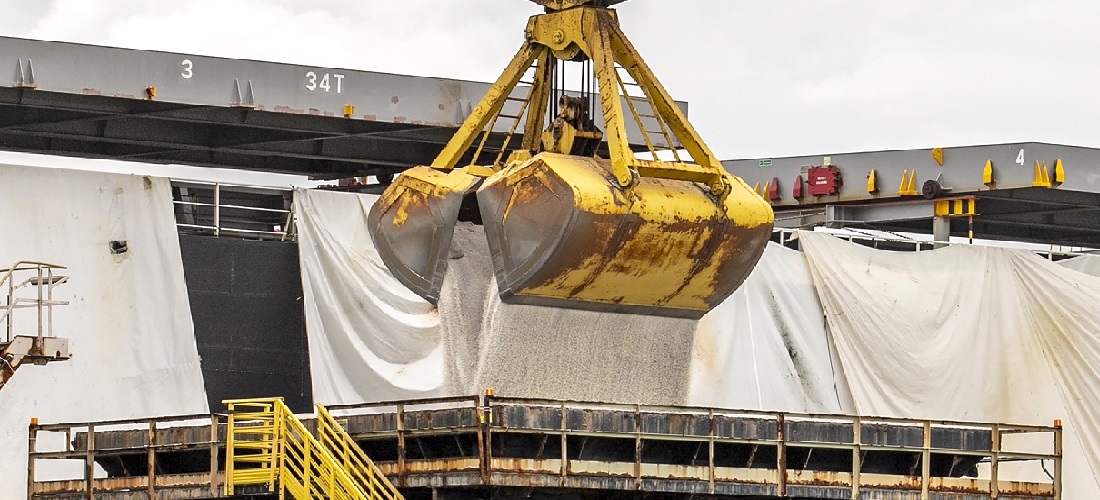
Brazil grapples with major fertilizer dependence challenge
Sep, 13, 2023 Posted by Gabriel MalheirosWeek 202338
Brazil’s dependence on fertilizer imports has proven to be a soft spot, especially since the start of the war in Ukraine in 2021. Russia, one of Brazil’s major partners responsible for 23% of fertilizer imports used in Brazilian agriculture, reduced shipments, raising a red flag, despite the recent record-breaking crop in July.
In response, the federal government has created the National Fertilizer Plan (PNF), a public policy promising measures for the next 28 years aimed at encouraging domestic production and, consequently, reducing Brazil’s vulnerability.
For Leonardo Sodré, CEO of GIROAgro, one of the country’s largest fertilizer industries, stimulating domestic production will only bring gains to the Brazilian economy.
“If we maintain the pace of investments and improve agricultural techniques with technological development, records will be broken. This consolidates Brazil’s prominent position in the global food production market and food security,” the expert analyzes.
According to the Ministry of Agriculture and Livestock, foods like soybeans, corn, and sugarcane, which have performed well this year, account for over 73% of fertilizer consumption in the country.
The National Association for Fertilizer Diffusion (Anda) revealed that over 70% of fertilizers used in Brazilian agriculture are imported, with the country’s largest external dependencies being potassium chloride (95%), nitrogen (80%), and phosphate (60%).
The scenario becomes even more concerning with the new expectation of Brazil’s demand for fertilizer imports, which could grow by approximately 20% by 2030, as highlighted by Bruno Fonseca, a research and sector analysis analyst for the Rabobank Brazil’s agricultural inputs market, during the National Fertilizer Congress held in August.
The growth is not only local, as emphasized by Fonseca, there is a growing global demand for fertilizers, with global demand potentially increasing by 15% to 20% compared to the rising grain production.
See below the increase in the total imports of fertilizers recorded in Brazil between 2019 and 2023. It is worth noting that the data available for the current year only reach July 2023. The data is from DataLiner.
Total fertilizer imports | 2019 – 2023 | WTMT
Source: DataLiner (click here to request a demo)
The Influence of Agricultural Commodities
A drop in agricultural commodity prices can negatively impact agribusiness exports by making the national product less competitive, as a significant portion of production costs is derived from the price of imported fertilizers.
This loss of competitiveness brings another consequence, which is the potential decline in the country’s GDP, a worrisome scenario as it is susceptible to the performance of agricultural commodities, given that agribusiness is one of the main sectors influencing the economy. It is estimated that its participation this year will be approximately 24.5%.
The National Fertilizer Plan
Thus, the National Fertilizer Plan can be a solution since the policy encourages research and exploration of Brazilian mineral sources, in addition to creating job opportunities and promoting opportunities for the national fertilizer industry.
Leonardo emphasizes that this incentive will also help lower food prices by supporting producer investments, as food production will also benefit.
“With deflation, we observe a significant recovery in the sector, and the biggest beneficiary will be the rural producer with more efficient production costs, offering cheaper food,” says Sodré.
During the National Fertilizer Congress, Carlos Leonardo Durans, Director of Development of the Inputs and Intermediate Materials Industry at the Ministry of Development, Industry, Trade, and Services (MDIC), reaffirmed the program’s launch in November.
The director also mentioned during the meeting that the current government is taking other measures, including prioritizing the natural gas agenda and approving the decree regulating counterparty commitments for the return of tax exemptions provided for in the Special Regime for the Chemical Industry (Reiq), which affect the sector.
Source: Canal Rural
To read the original news piece, check: https://www.canalrural.com.br/agricultura/dependencia-de-fertilizantes-e-grande-desafio-para-o-brasil/
-
Shipping
Aug, 05, 2022
0
BR do Mar: gov’t issues decree allowing companies to enroll in the cabotage program
-
Other Logistics
Aug, 27, 2019
0
Argentina: Belgrano Cargas Line renovation brings many improvements
-
Ports and Terminals
Jun, 28, 2021
0
Argentina: unloading structure collapses at the Puerto Quequén terminal
-
Grains
Aug, 04, 2023
0
Russia exports 4.54mt of wheat in July; 62 thousand for Brazil


